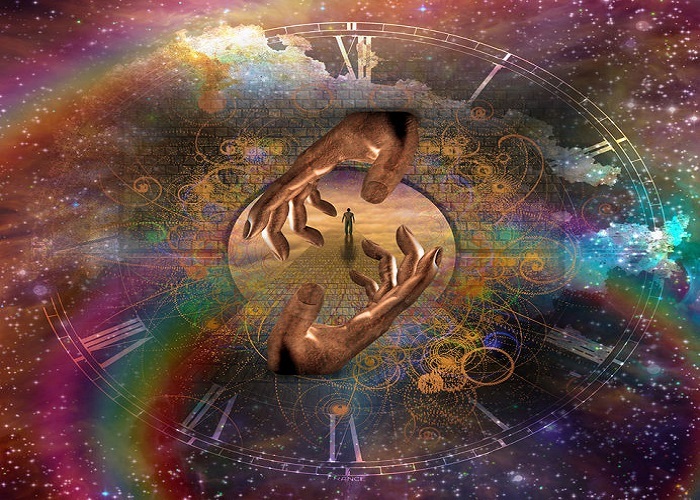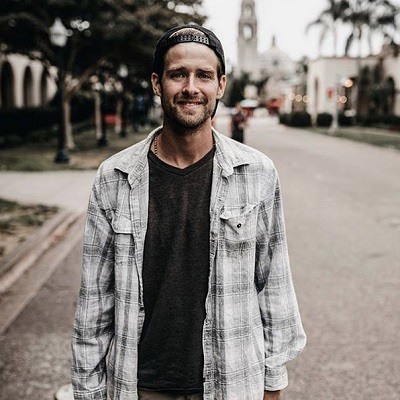
Are you spiritual?
To answer the question, we’d have to reach a consensus on what spirituality is.
And because that’s never going to happen—it’s just too broad for any one definition to hold any more weight than another— here’s one version of what spirituality looks like in 2019 that can allow more meaning and impact to show up in your life.
When you allow these important measures of human growth—meaning and impact—to show up in your everyday life through your actions, you not only ensure you are living a spiritual life, but you also gauge your progress: a factor that directly contributes to your happiness.
In every moment, we all have a choice to make, whether to act in alignment or not. To drive our sense of fulfillment, or not.
How meaning and passion combine with our relationships—and not just to the people that we are closest to, but also to everyday strangers—can be considered spirituality in action.
We may not be able to answer the question, “am I spiritual?” but we may be able to answer the question, “am I living a spiritual life?”
We already have the template for modern day spiritual living.
A template for modern day spiritual living aligns with childhood clichés espoused by soccer coaches, parents, and teachers.
- Do your best.
- Be good.
- Practice makes perfect.
Concepts become spiritual when they relate to the more uniform truths about our existence.
You’re at a dinner party, laughing and talking about how Cardi B’s acceptance speech got ruthlessly cut off at the Grammy’s last night.
Someone chimes in about how maybe in life in general, we should listen to when the cut off points are, for relationships, jobs, mentalities, and ways of being.
Pause in the conversation…
Then someone chimes in, “that’s deep, bro”. That’s a perfect example scenario that we can all relate to where concepts become spiritual. It’s that point in a conversation where the understanding would be recognized as “deep.”
Let’s not forget just how deep a statement like “practice makes perfect” really is. It’s not to say that you’re fully realized when you are perfect, it’s to say you are fully realized in the pursuit of perfection.
It’s in the doing, not the being. It’s in the process, not the end result.
That’s not to discredit the being part.
Self-evaluation can help us reevaluate how we treat others.
We usually figure out how to best act during moments when we are not acting.
So, we surrender into those moments, where the need to do anything dissipates in the space of pure being, and we can have the conversation with our higher self: “what is good for me,” “how can I do my best,” “what do I deem worthy of practice?”
The answers to these questions play out in what we decide to do with the vast majority of our lives, which will consist of taking action on things.
Those actions directly affect others. And how we affect others determines our sense of fulfillment in the world.
It’s important to say again: relationships with the people we are closest to and also the interactions we have with everyday strangers can help us gauge our personal growth.
Happiness is proportional to the magnitude of your personal growth.
Being spiritual starts to transition into living a spiritual life when we start to practice it.
When we’re kids, doing our best means that authority figures are satisfied with our performance.
Often this is not the case in our adult lives. We sometimes hold others to high standards that we ourselves do not meet.
Or we stop measuring our progress and therefore forget about progress altogether.
As adults, we all have access to the self-help world as an entry point into determining what being our best selves looks like. Cliché, right? Exactly…
Spirituality is all the best pieces of self-help advice combined into one power phrase and put into action.
A few examples of self-help advice you’ve probably—definitely—have heard a bazillion times in a bazillion different ways are:
- Becoming your best version.
- Stepping into your authentic self.
- Be a better person than you were yesterday.
Pop self-help culture has already molded a lot of different ideas about what’s the best way to live into uniformly accepted pieces of advice, which we refer to as clichés.
It would be useful to come up with your own power phrase, a combination of all these powerful tidbits of self-help wisdom, into a phrase that feels complete to you.
It’s up to you to come up with your own operational cliché that includes the things you find important and omits the things you don’t. That’s your power. And that’s your power phrase.
It’s a statement that feels more personal to you than a cliché, because it is a statement designed for you, by you.
Naturally it should feel complete and result in similar feelings within you of wholeness.
We are wanting to create an actionable code of conduct that feels complete and unique to us so that we may be able to act on its principles.
The monk is spiritual, and the street missionary is living a spiritual life.
We’ll use the real-life example of the monk and the street missionary, to examine the difference between being spiritual and living a spiritual life.
We can all recognize the relevance of action to living a spiritual life. Energetic placeholders—think the monk on the mountaintop—uphold the highest vibration possible within themselves and are necessary for the development of spiritual principles, which they can then teach to others.
They may passively influence a select number of visitors, who over the course of their stay, visit the monastery.
Although, it’s in the teaching of the wisdom they acquire through long periods of stillness, in which they commune with the divine—the actionable step—that it would be recognized as spiritual in the modern context.
There’s a street missionary who combs the street of the once-bustling town of Huntington, Virginia that now has a new claim to fame, an overdose rate of 10x the rest of the nation.
As featured in the Netflix documentary Heroin(e), Necia Freedom, who you can think of as a brown bag minister, delivers a bite to eat to women who resort to prostitution to support addiction.
It may be a simple intervention but Necia is out there on the streets—probably right now— hand-to-mouth, intervening on something she’s identified as an important problem to solve.
She may not be able to tell you why she does it. In fact, the monk on the mountain top, with all the wisdom acquired through meditation might be able to tell you why someone like Necia would be called to do what she does better than Necia herself.
Necia is applying what she knows to be spiritual and putting it into action.
Give a Pb & J to someone who isn’t cared for and apply all of what’s spiritual in life, all at once.
Our actionable code of conduct is what allows for us to live a spiritual life versus being a spiritual person.
Actions speak louder than words. A tastier way to say this is “the proof is in the pudding.”
You can talk about making pudding all you want, but no one—not anyone other than fellow pudding makers— is going to care until they have spoonful of pudding in their mouth. Spreading the creamy goodness around their mouth with their tongue, really tasting every part of it.
The philosophy of what you say is much less likely to resonate with someone than the action of what you’re meaning when you say it. In the following three scenarios, what you mean is more progressively felt if:
- You tell someone, “close your eyes and pretend I’m giving you a flower.” Here you go…
- You hand someone a flower.
- You hand someone a flower and say, “I got you a flower because it allows me to show you how special you are to me”.
See, actions speak louder than words. And not in all circumstances but in most, actions + words speak louder than actions alone.
Applying the right combination of actions and words to everyday encounters can not only change someone else’s day and life but it can also provide you with a greater sense of meaning.
The results of the actions we take allow us to witness the meaning of our thoughts and words being translated into impact.
It’s important now to answer an important follow-up question: what is it that we can act on with enough confidence, like Necia, to feel fully satisfied that we are living a spiritual life?
Alignment is your friend. Being out of alignment has a greater power to drive our behavior than any other single factor.
How we affect others allows us to gauge whether or not we need to adjust our behavior to align with our desired intention.
If our impact aligns with our desired intention, we feel confirmed. If our impact does not align with our desired intention, we feel the need to change and possibly even feel regret depending on the severity of the misalignment.
Misalignment plants a growth seed in us, and when that feeling of needing to grow becomes strong enough, we will be forced to take action.
When the impact of us changing has more weight than the impact of us staying the same, we decide to make a change.
In order for us to be the cause of desired effect, we must first decide what the outcome would allow us to feel successful.
We then must come up with the action steps that are most likely to result in that outcome. Let’s say the intention is to be more positive.
What’s the effect that I would have to see to feel successful in my intention of being a friendlier, more positive person? Friendliness, that’s it!
Okay, so friendliness is the most obvious way I can show people that I am a positive person. And by taking the action of friendliness, others might receive my positive intention.
It’s easier to recognize a moment of impact when we have previously visualized what the optics of our desired outcome look like in advance.
Seeing ourselves positively mirrored in the people around us allows us to feel confirmed in our intention.
This can be through smiles, laughs, or any other outcome that we have pre-determined to mean we are successful. Confirmation keeps going. We deem synchronicities as proof we are on the right path.
We even have a word for it. Signs. People across all categories recognize this term as significant.
But how often do we visualize an outcome that we want to see and use the occurrence of that outcome to determine whether or not we are on the right path?
That personalized version of “signs” is an internal guidance system we can all use to navigate, rather than piecing together meaning in the form of signs on the fly.
Like a good photo op, we can take mental snapshots of the optics of what our success in living a spiritual life would look like and store them in our emotional memory so that we can reference them in the future.
Through our why, we determine who we are and what we need to do to act in alignment.
Through our how, we impact others.
You can rest easy knowing the tools presented here today—self-evaluation, alignment, visualization— will always be there to help you become your version and step into your authentic self, the key to living a spiritual life in 2019.
- Be good.
- Do your best.
- And practice.
About the author:

Tim is currently a San Diego-based yogi and traveler whose motto is “step into your purpose and share it with clarity.”
Subscribe to his Living is Learning Podcast and YouTube channel: @timbrogan. Website: topselfdevelopment.com
Read next: Red Butterfly [Spiritual Meaning & Symbolism]

